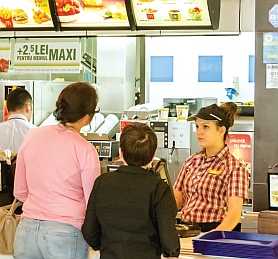Ontario lawmakers no doubt had the best of intentions when they began working on the Making Healthier Choices Act. The idea was to compel fast food chains to post nutritional information about menu items, thereby encouraging patrons to opt for less fattening meals.
There was, however, a critical stumbling block within the draft. The original version of the legislation included a provision that designated franchisors as operators of the restaurants, responsible for following through on the new rules, even though it’s the individual restaurant owners (or franchisees) who run the restaurants and make such day-to-day decisions.
“In essence, the government was making Mr. X responsible for the obligations of Mr. Y,” which is unfair, says Larry Weinberg, a partner at Cassels Brock & Blackwell LLP and past chair of the Ontario Bar Association’s franchise law section. It also threatened to upset the businesses of countless franchises across the province.
The good news for franchsors is that the government listened to the industry and revised the wording of the Act, which was overwhelmingly approved May 26 and is set to come into effect January 2017.
No one in the industry was disputing the notion that governments should play a role in combating obesity, but franchisors maintained that holding restaurant chains to account for the actions of their franchisees – as the law had originally envisaged – was the wrong way to go about it. The franchise industry represents a significant slice of the Canadian economy, generating some $68 billion in annual sales, according to the Canadian Franchise Association.
It’s also a complex business, often subject to confusion, especially when it comes to the role of the franchisors, who are merely the owners and distributors of assets such as know-how and brands. Those are licensed to franchisees — who in turn actually run the restaurants and stores that are part of the chain, says Weinberg.
At its core, franchising is a business of carefully apportioned risk and responsibility, and its success has everything to do with that balance. Anything that upsets that balance – such as the original version of Making Healthier Choices Act – poses a threat to that success.
Such interference creates “a barrier to doing business as a franchise because franchises are held to a higher standard,” says Peter Snell, a partner at Gowling Lafleur Henderson LLP who practises franchise law in Vancouver. “If you try to impose the corporate model [where senior management hold all the responsibility] on the franchise model, you kill it.”
“Everyone was very pleased [that Ontario revised its law]. It was a very positive outcome,” says Jennifer Dolman, a partner at Osler, Hoskin & Harcourt LLP. Still, the industry is on its guard as jurisdictions across North America seek to establish laws around what restaurant chains can and can’t do.
Right now, for instance, provinces across Canada are believed to be considering rules around the posting of caloric information by fast food chains. Some will adopt a version of Ontario’s legislation. Others will look to British Columbia’s so-called Informed Dining program, which makes disclosure voluntary.
From a policymaker’s perspective, it’s not hard to see why governments are keen to define franchisors as owners and operators. When administering regulations, they would only need to communicate with a single entity instead of potentially thousands. The drawback? It upsets the industry business model.
“If they keep on pushing the door open a little more and a little more, pretty soon people will stop franchising,” says Weinberg, “because why become responsible and liable for someone else’s problems?”





